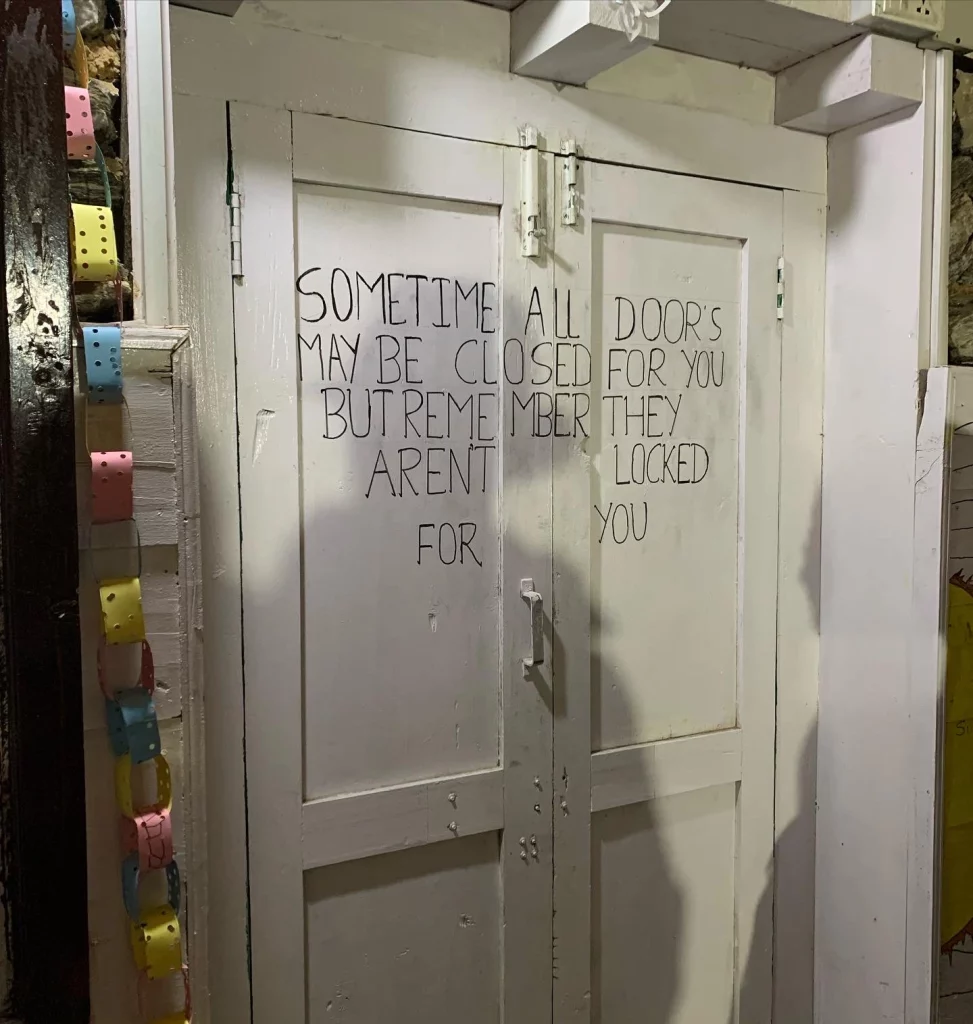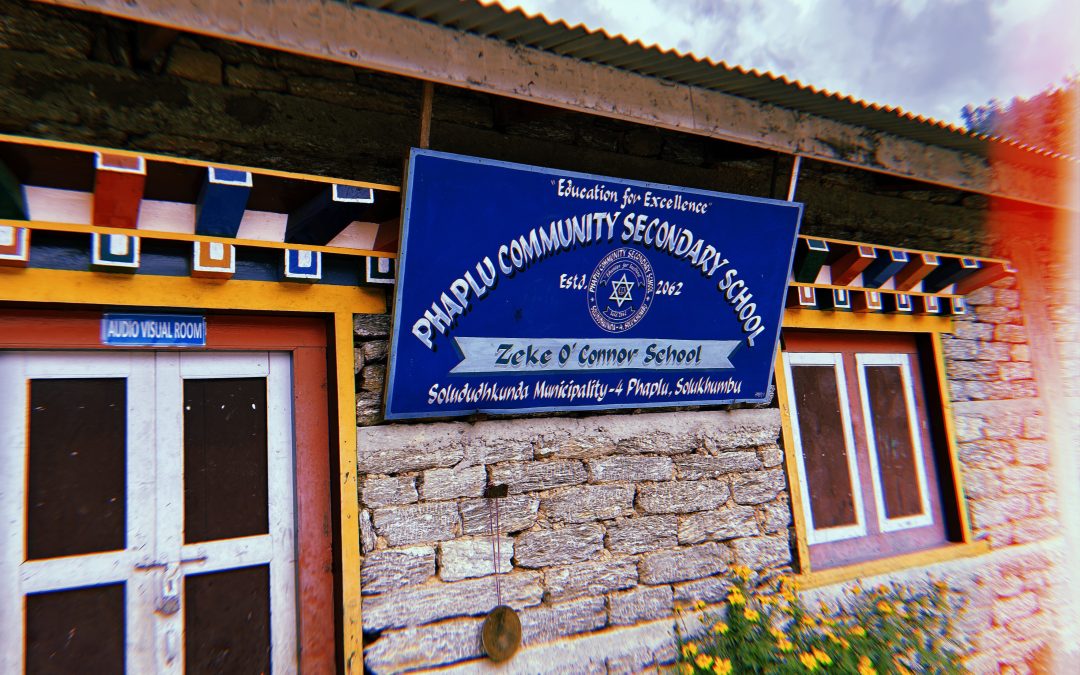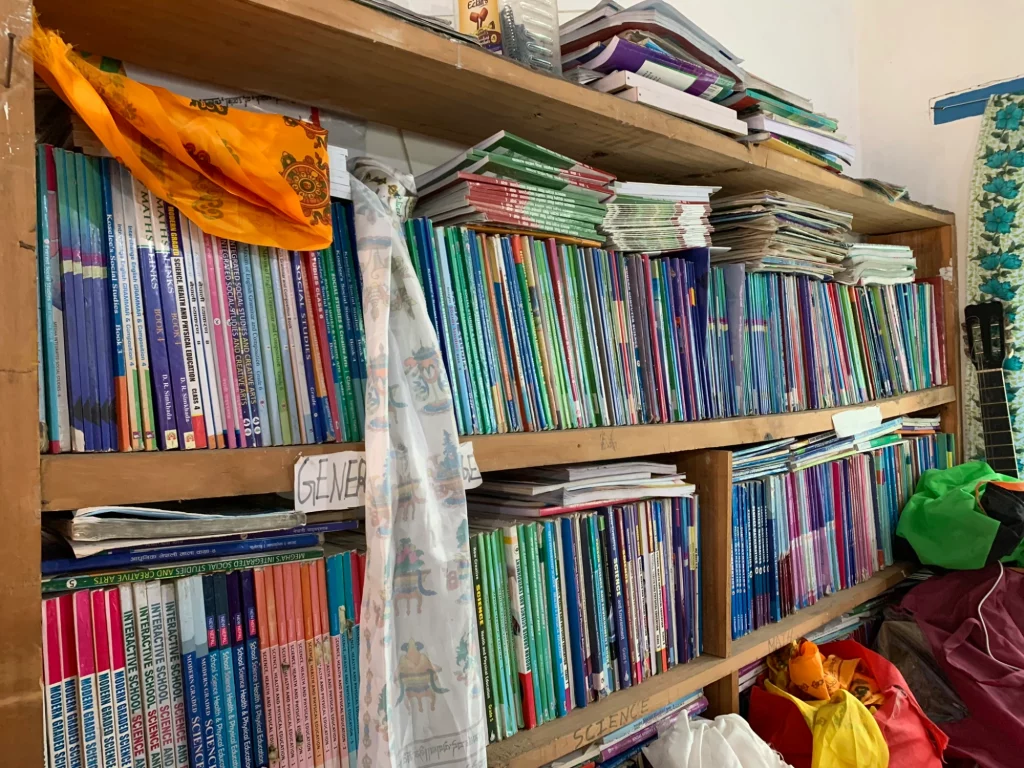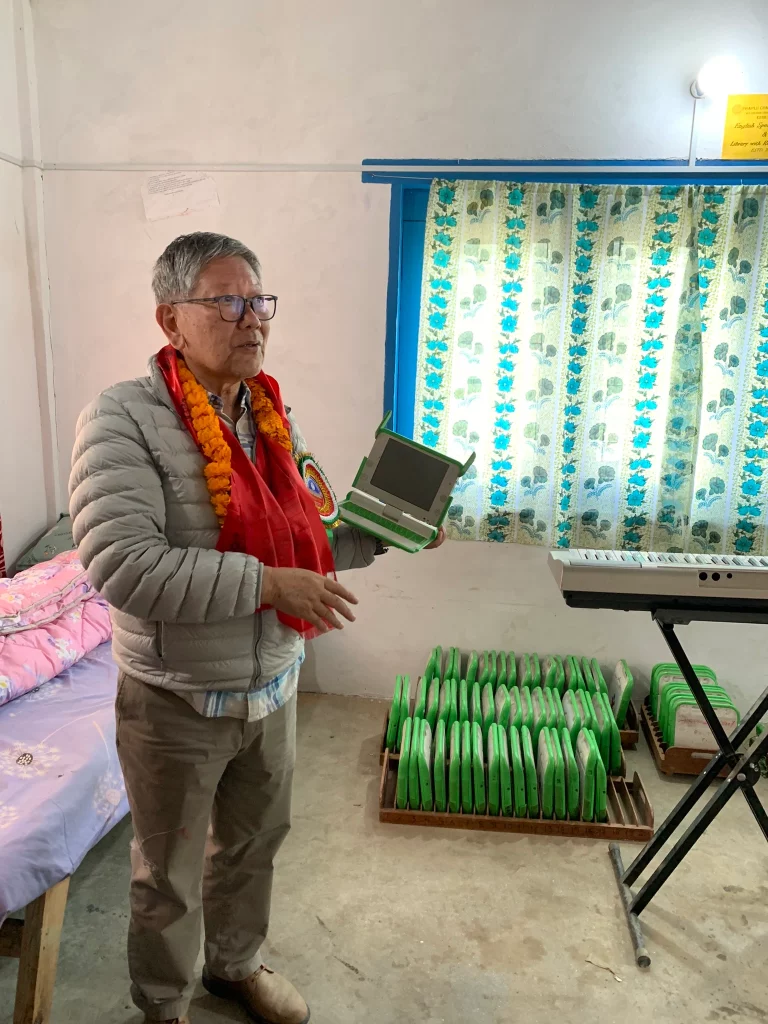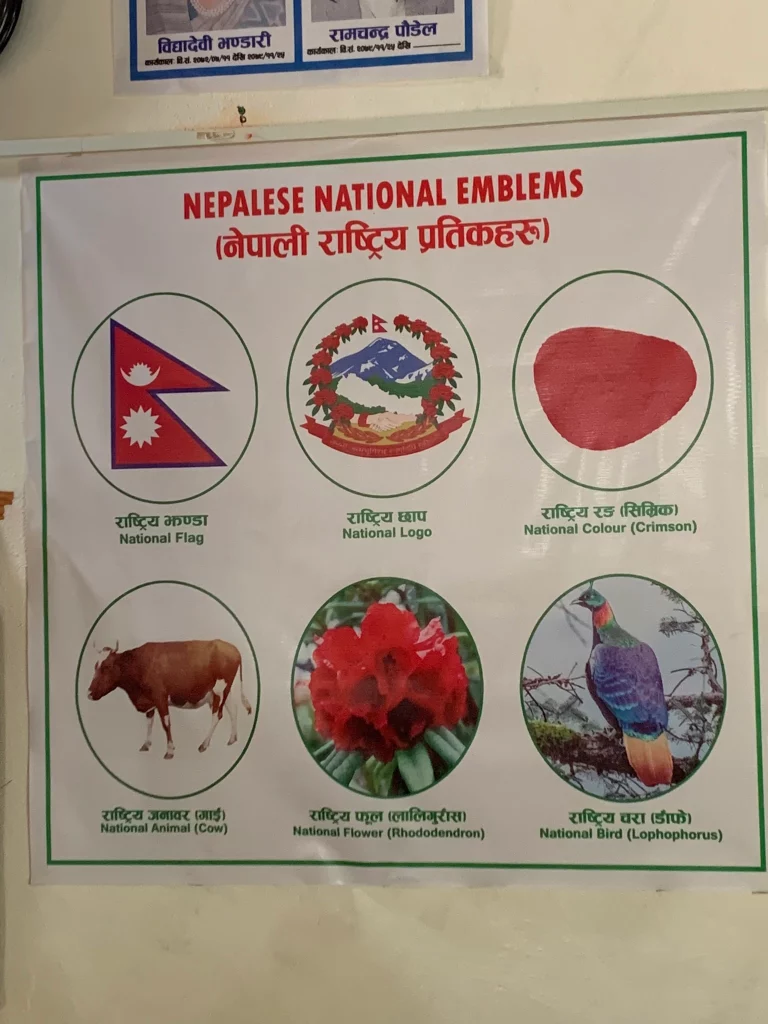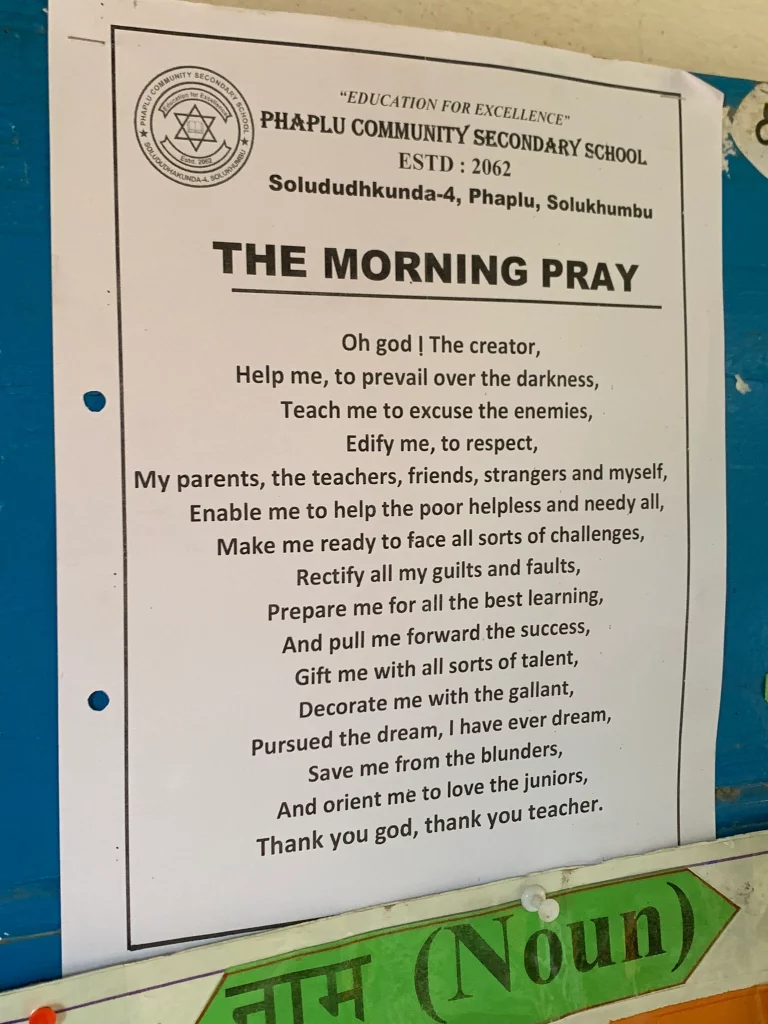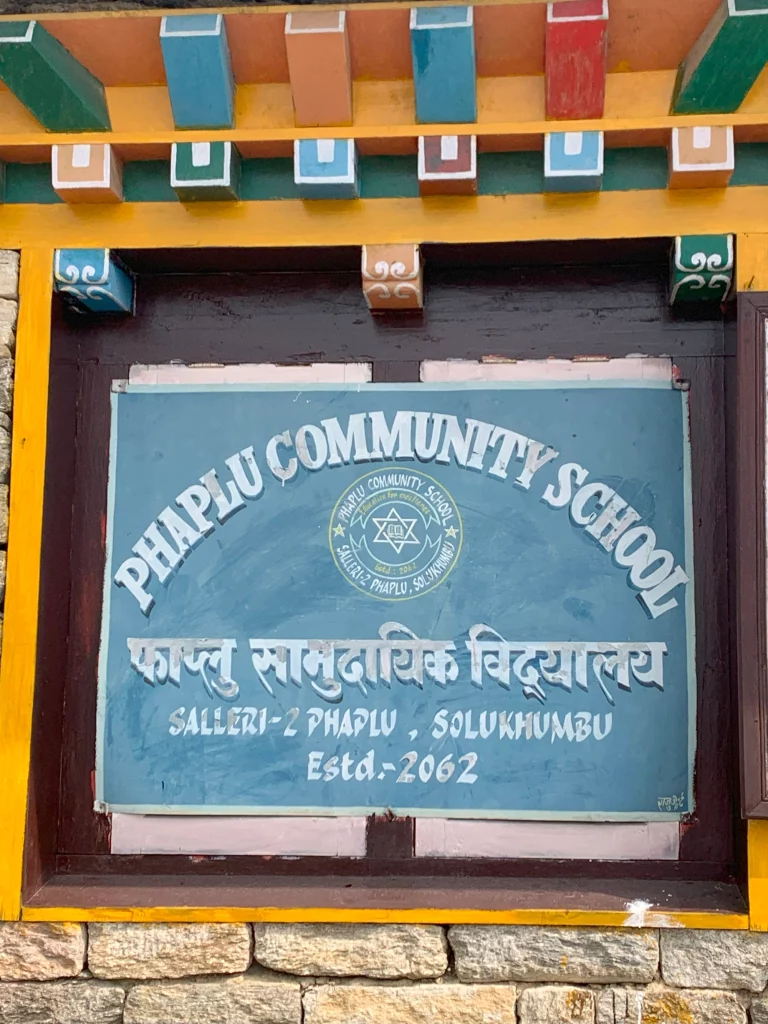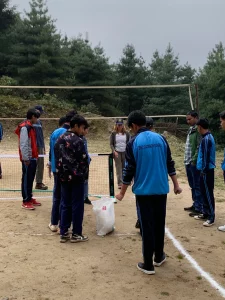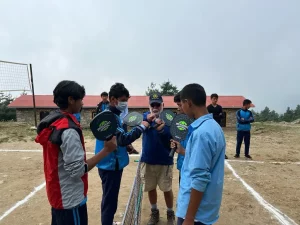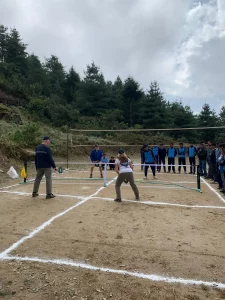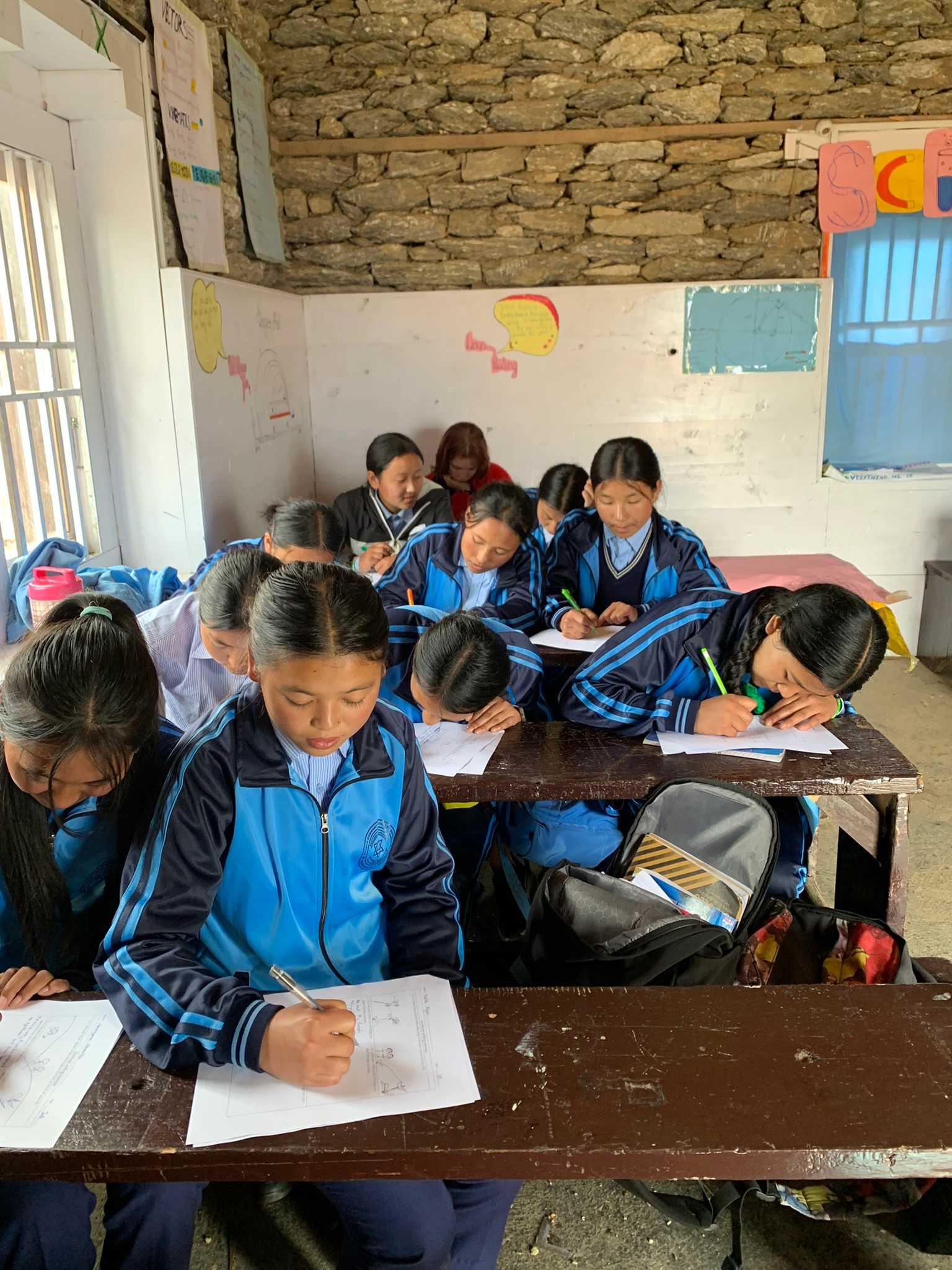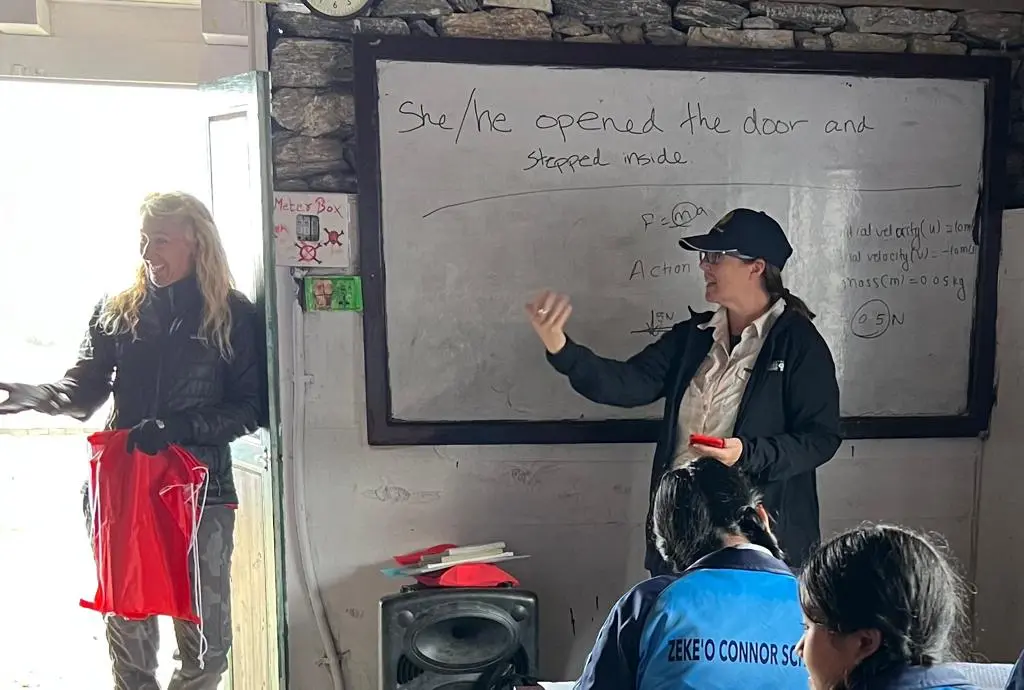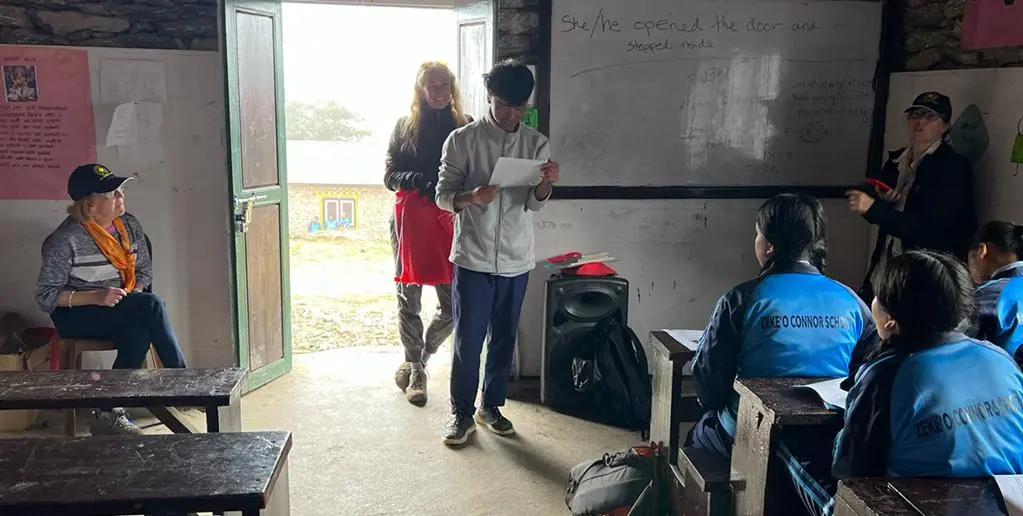As mentioned in the last post (the Phaplu Snafu), on day 7, the team split up to spend time at the Zeke O’Connor (ZOC) junior and senior schools. In this post, we describe in a little more depth the activities of the day.
But first, here are some things you may not know about ZOC:
- The school is quite different from other schools in Nepal. It’s unique in the country in that it is “private,” but does not charge tuition (it’s fully funded by the Sir Edmund Hillary Foundation of Canada).
- It’s open to all, regardless of economic standing — children from some of the poorest families attend.
- English is at the heart of teaching from the first day of preschool.
- The focus is on science, technology, engineering and mathematics (STEM), but the staff also make room for extracurricular activities like poetry, chess, and sports. It’s a well-rounded education.
- The school encourages girls to continue their education, and among other schools in Nepal, ZOC has one of the highest ratios of girls to boys.
- Parents partner in the education: some of them have to make serious sacrifices so that their children can attend ZOC. They play an active role and are committed, so students come to school ready to learn, every day. We saw first-hand how many families attended the Welcome Program.
- It needs your help, to support the students, make desperately needed upgrades to equipment and infrastructure, and evolve for the future.
Scenes from the junior school: wall art; the library; co-founder Dr. Mingmar demonstrates laptops from the One Laptop Per Child project–they still function but they are almost 20 years old:
“We meet the teachers and watch the opening exercises and then the speech to welcome Mary Kaye and Justin, Zeke O’Connor’s grandson (who has been trying to get here for the last 4 days). After opening exercises to calm and focus the students, their day begins as they scatter to their respective classes. We are all here to spend time in the classrooms.”
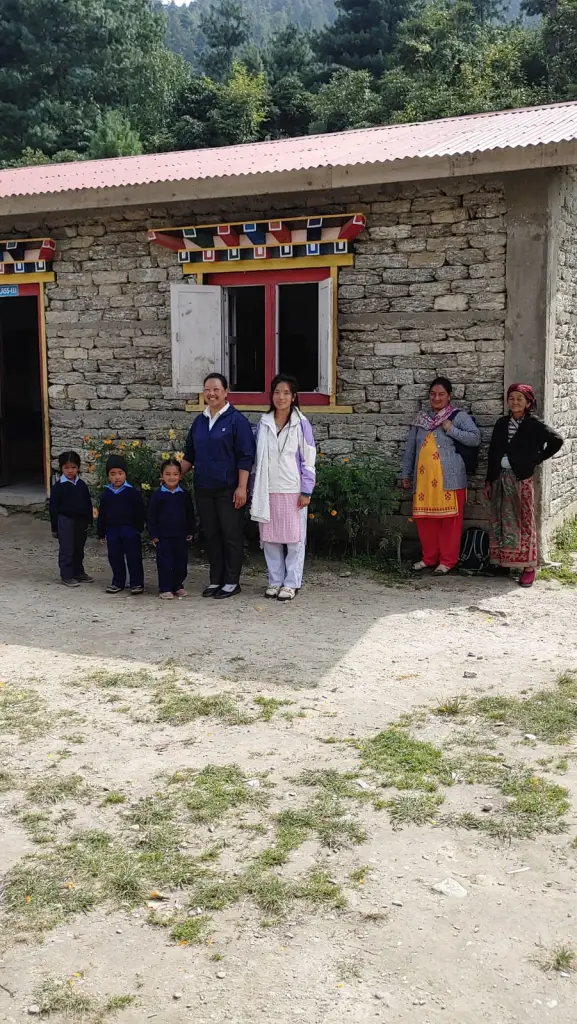
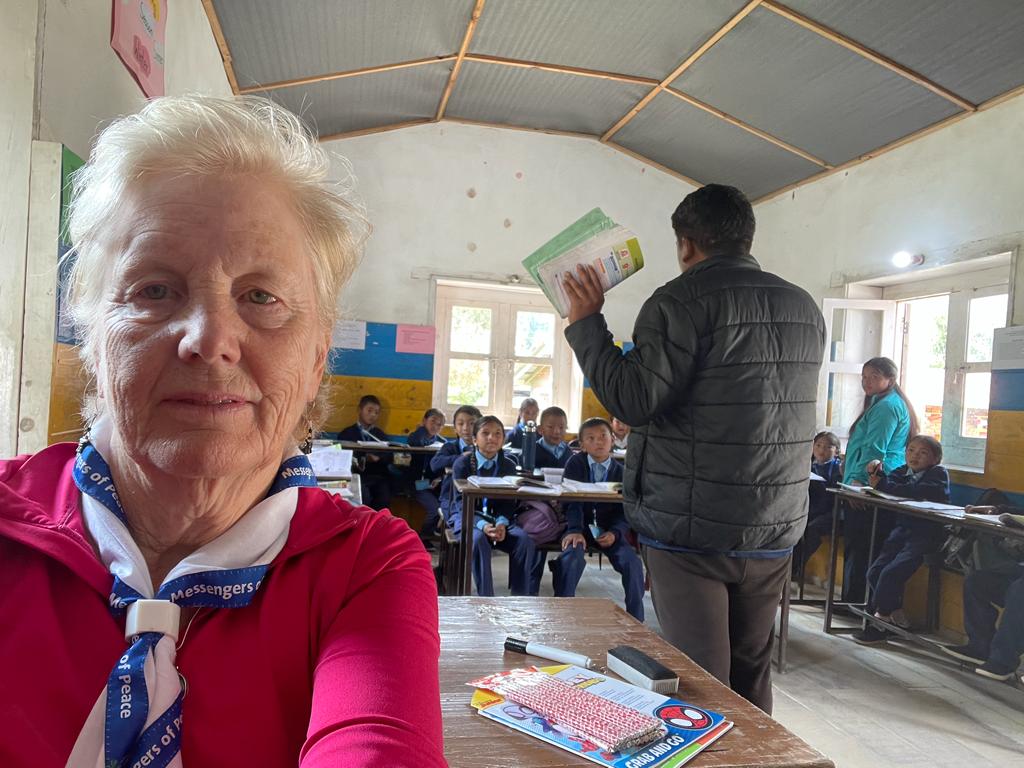
Virginia (a.k.a., “Mango”), sitting in on a class.
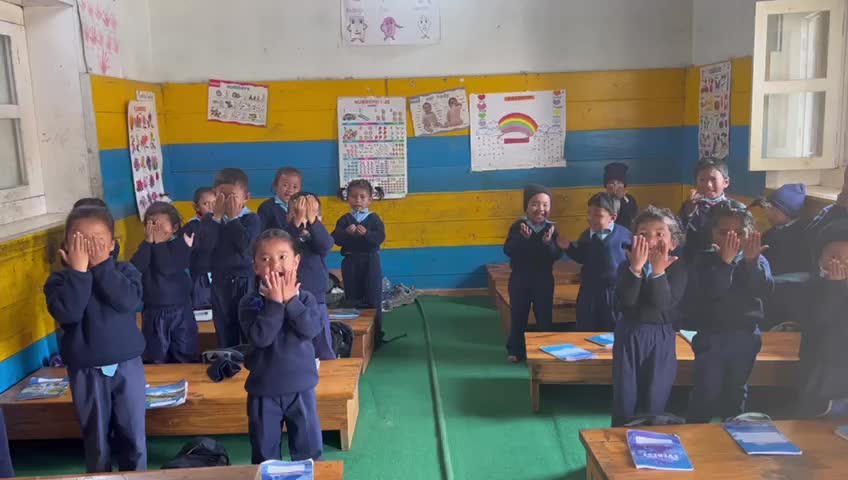
You are my sunshine (video: Mary Kaye)
“The morning passes fast; there’s a quick lunch before Mary, Virginia and Justin depart to visit the senior school, and George and I join the students outside for some play.
As George observed, playgrounds around the world all sound the same.
This afternoon, George and I work with class 6. We hope to build, with modifications, a Classroom Lodge Pole. We ask each student to draw something that is special to them, such as a soccer ball, a book, computer, their village, musical instrument, flowers, or friends holding hands. We tape their completed pictures, with name and age on the back, along the wall to represent their class. Many of the students begin to play a game: guess who made which picture?
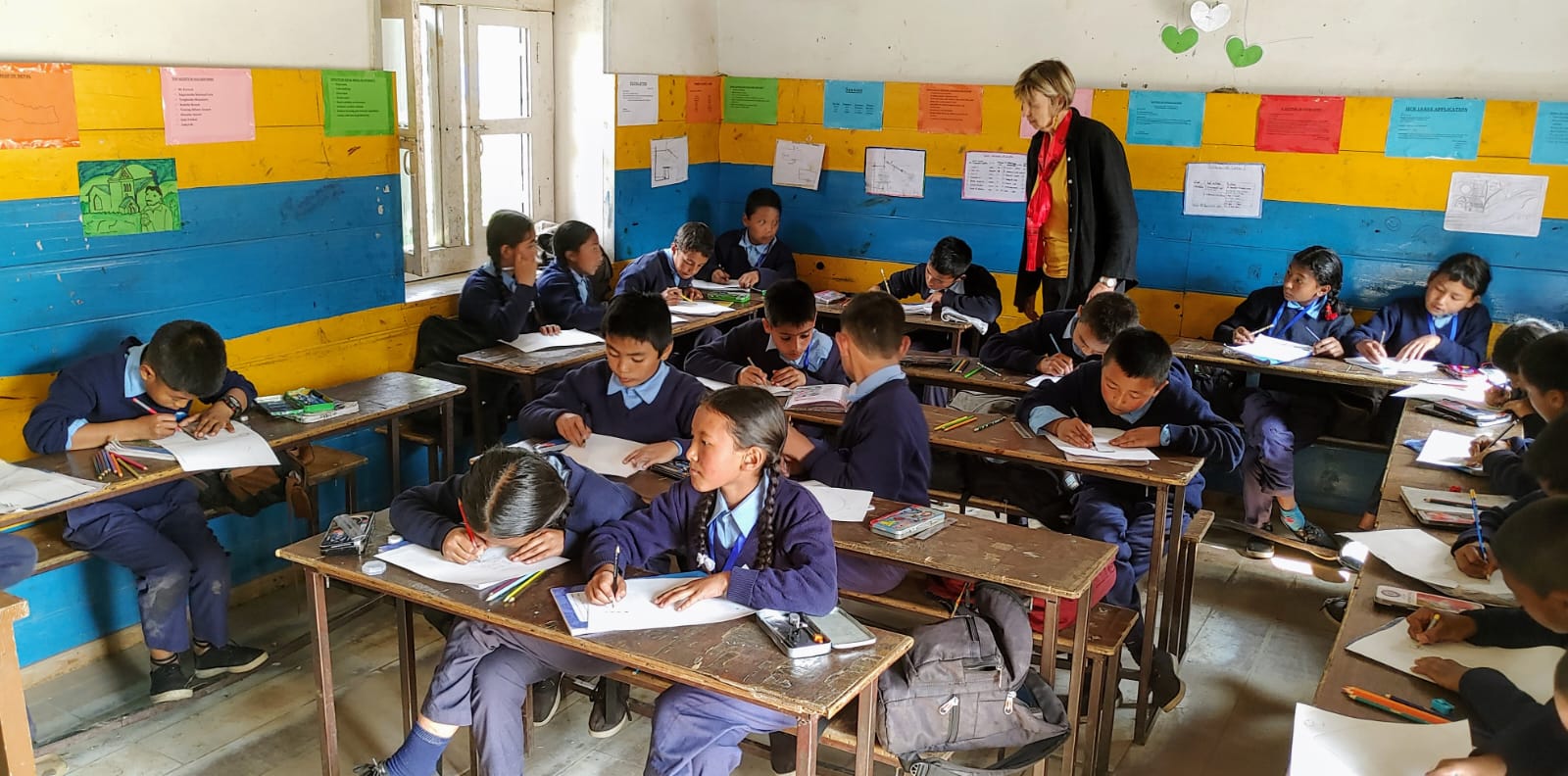
Shelagh with the junior school students (pic: George Maclaren)
George and I spend the rest of the afternoon moving around the school to spend time in each of the classes; to say hello, ask what they are studying and ask a few related questions. Recess, again with the wonderful sound of children playing.
At 3 p.m., after saying goodbye and hearing the closing of the day, we join the bubbling exodus toward home.”
Over at the senior school, Kristie, Vicky, Heather, Erica, Allison and Paul watched the students perform their morning calisthenics, sat in on a couple of classes, and then got together with Principal Lhakpa to plan the sessions for the day.
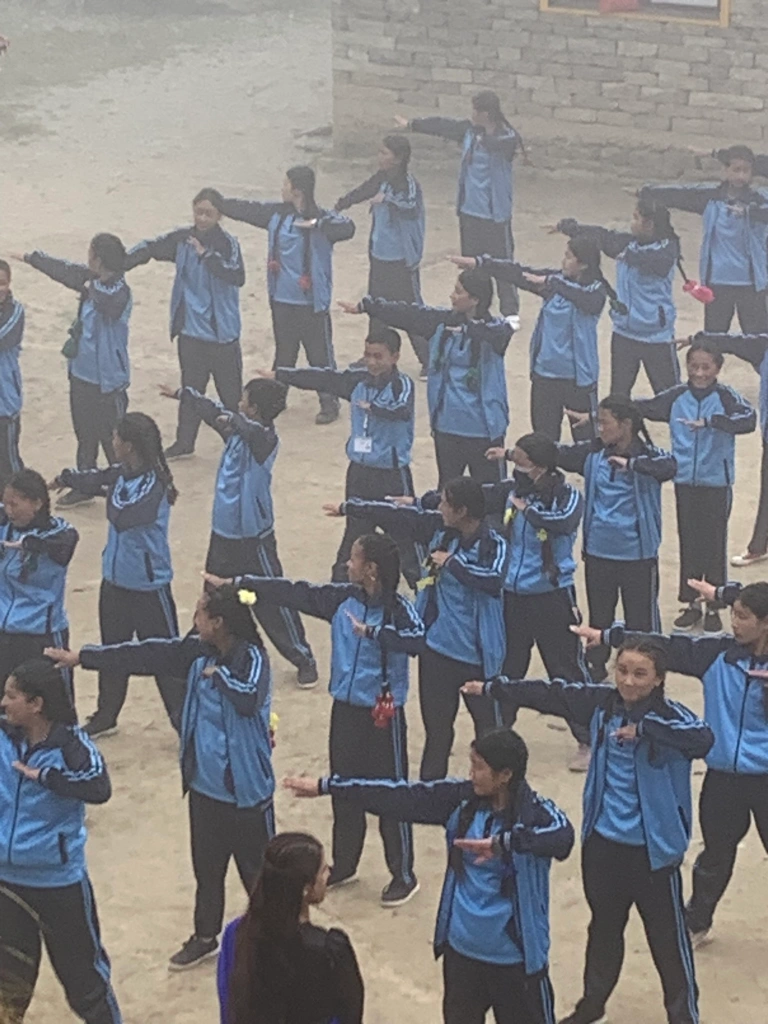
Warming up on a cool morning.
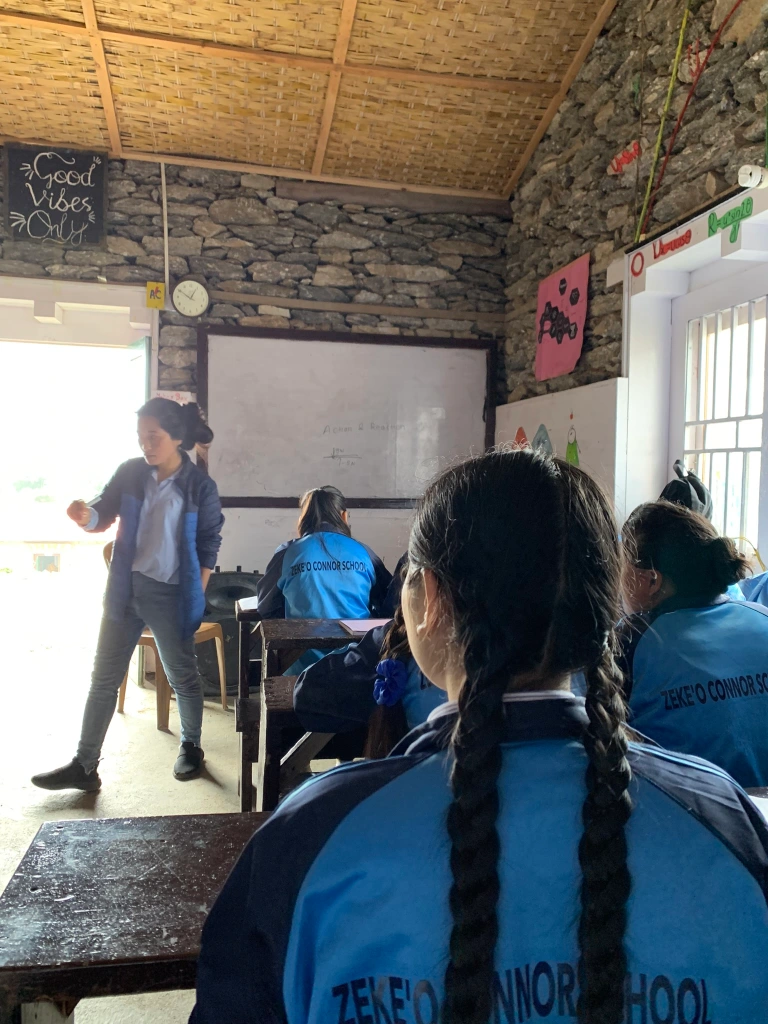
Teacher Teena in action in the physics class. There are no handouts; teachers dictate text, which the students write down, then use their notes to answer questions in class.
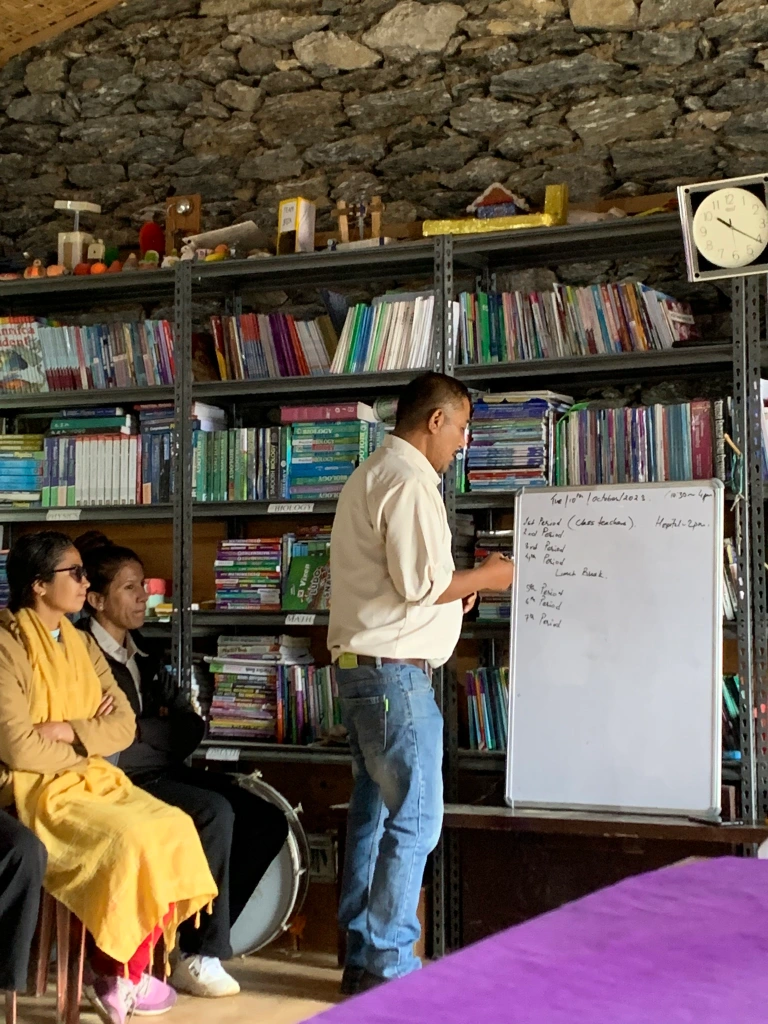
Planning session in the teachers’ lounge (pics: Vicky Bell).
Several of the travellers had wanted to contribute a learning session relating to an interest or area of expertise. The topics were pretty varied!
Allison, Paul and Rick introduced pickleball to Phaplu:
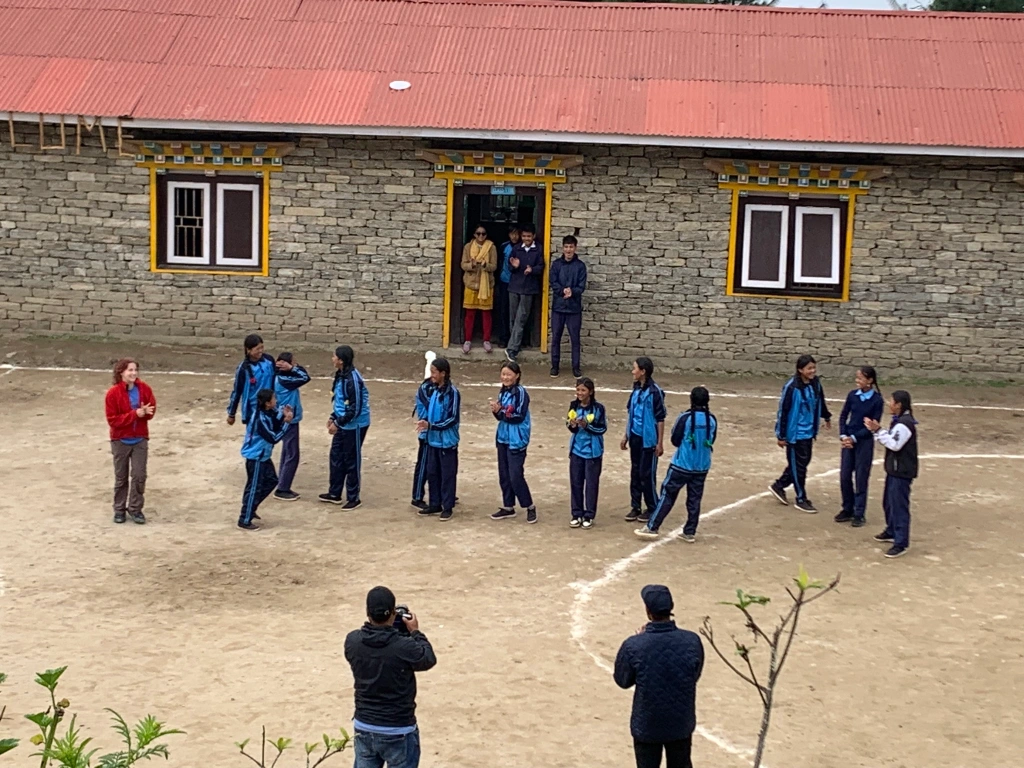
Erica choreographed a dance with her Grade 7 cohort, which they performed for the group.

Physician Heather offered a class to senior girls on sexual reproduction and health.
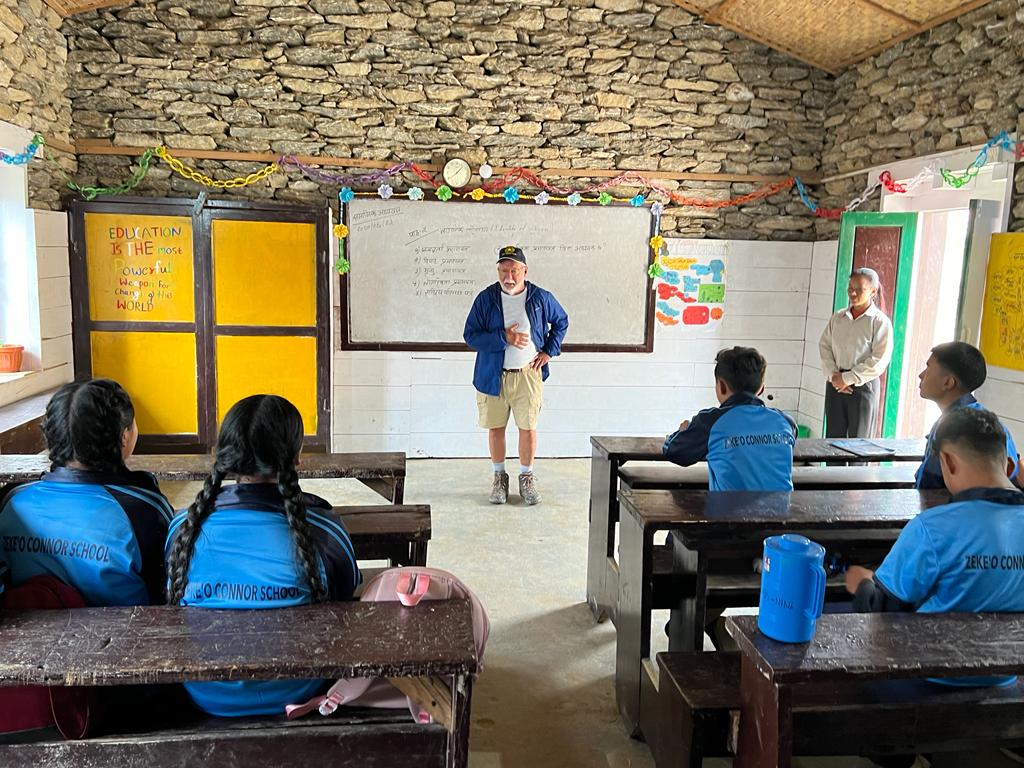
Paul conducted a session on leadership.
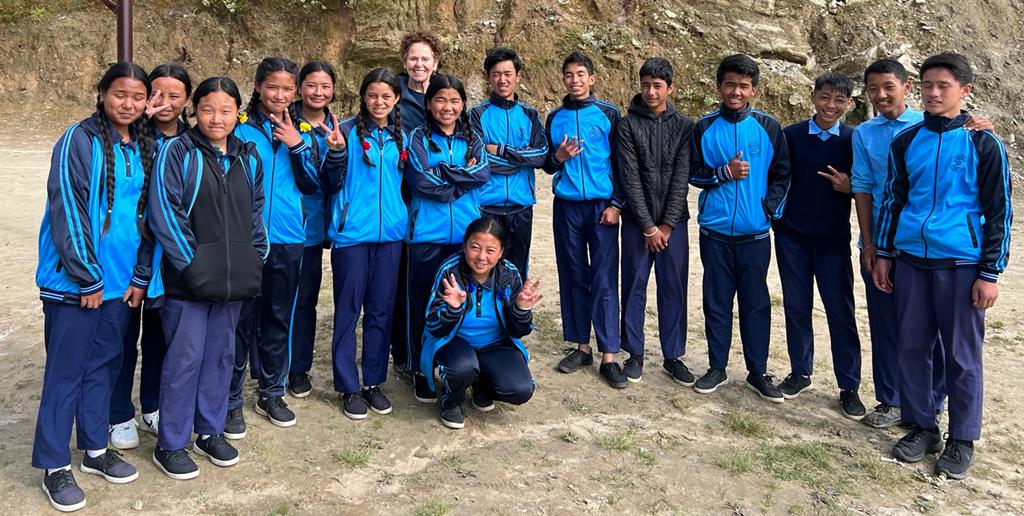
Susan taught students about how to tap into the energy of their bodies.
Kristie read a poem from her son’s book of poetry, Under the Chestnut Tree by Carter Gill, which led to a discussion on being present in the moment. Vicky and Kristie then ran a short creative writing class: students were given a prompt, asked to write for 15 minutes, and then (if they were brave enough!), to stand up and read their work.

With the trip drawing to a close for some, the gathering was a chance to reflect on everything we’d experienced over the time so far in Nepal. The people we’d met and fallen in love with. Everything we’d seen and learned. What we perceived to be the needs of the school, students and faculty, and how we might be able to contribute in the future.
We can’t lie: it got emotional. Leaving was going to be very, very hard.
